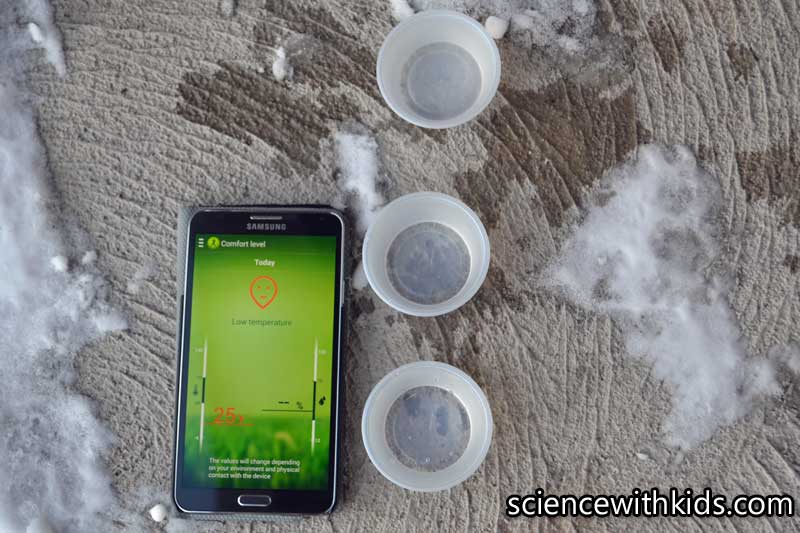

Water Freezing Point - Including Saltwater Tests
Posted by Admin / in Matter Experiments
It is well-known that the freezing temperature of water is 0°C or 32°F. Is there any way to change the freezing temperature of water? By performing this simple 30 minute experiment you will find out. Freezing temperature of water is tested by mixing water with some different materials and then performing freezing tests.
Materials Needed
- Clean tap water
- Cold Outside Temperature or a Freezer
- Thermometer (liquid) - Optional
- Thermometer - (atmosphere) or smart phone
EXPERIMENT STEPS
Step 1: Fill 3 small containers with water. Each container must have about the same amount of water. Do not fill the containers too full because they will need to be moved. Place a thermometer in one of the water containers and take a reading of the plain water termperature. The three liquid containers will all have the same starting temperature.
Step 2: Make a table salt (sodium Chloride) and water solution. The maximum amount of salt that typical tap water can hold until saturation is about one part salt and three parts water. We will not use this much because it takes too long to stir in the salt to get it to completely solution. Instead, we are using small containers so we only used about 2 teaspoons. Mix in all of the salt until there are no more crystals at the bottom. It will take a few minutes.
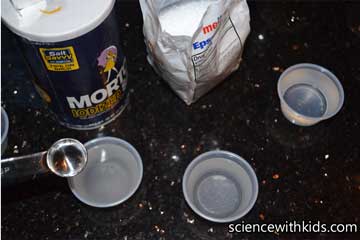
Mix a solution of table salt and water
Step 3: Next make an epsom salt (magnesium sulfate) and water solution. Epsom salt is much easier to mix with water. Again, we only used a few teaspoons full of epsom salt with our small containers.
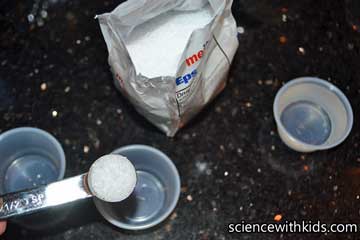
Mix a solution of epsom salt (magnesium sulfate) and water
Step 4: Place all three containers outside or in a freezer. The outside temperature must be lower than freezing for this experiment to work. Start a stopwatch timer to begin tracking the amount of time it takes for the water samples to freeze.
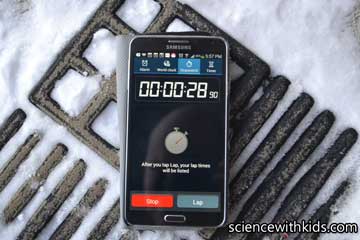
Set the timer to see how long it takes for each of the water solutions to freeze
Step 5: Measure and record the starting temperature of the air outside or in the freezer.
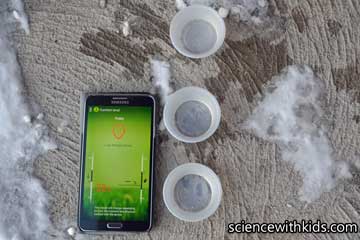
Measure the air temperature (or freezer temperature)
Step 6: Observe the mixtures and record the time when each of the water samples freeze. This is the time when the top of the sample freezes. It will take much longer for the entire sample to freeze. We will understand the results by only observing a freezing of the surface.
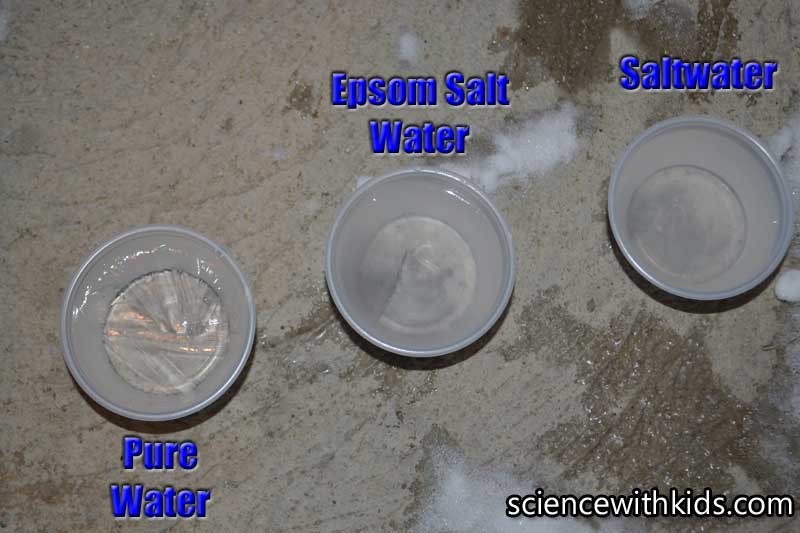
Observe the solutions and record how long it takes for the water, epsom saltwater and table saltwater to freeze
Step 7: Take a measurement of the air temperature at the end of the experiment to make sure it has not changed much.
SCIENCE LEARNED
What results were observed during your experiment? You probably saw that pure water froze first, followed closely by the epsom salt solution. Saltwater takes a little longer thant the other samples to freeze, but if it is cold enough, saltwater will freeze. In general, water freezes at 0°C (32°F) and ocean saltwater freezes at 28.4°F (-1.9°C), but there are some additional factors that effect the temperature and how long each of the samples take to freeze. Here are some factors that will change either the temperature or the amount of time the samples take to freeze (or both):
- Starting Temperature of the Samples
- The air temperature
- Atmosphere - Elevation and Atmospheric Pressure
- Amount of salt or epsom salt in each solution
- Contaminants in the water
- About the author
- Back to Experiment
Please select the social network you want to share this page with:
We like you too :)
Thanks for taking time to give us feedback!
- Matter science experiments
- science experiments for kids
- water experiments
- science of water
- freezing water
- freezing saltwater

posted by Admin
- previous experiment
- next experiment
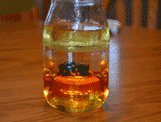

Liquid Density Experiment
in Matter Experiments
Experiment with the density of different types of liquids.
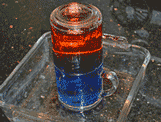
Hot and Cold Water Density
Use this simple experiment to demonstrate hot and cold water density..
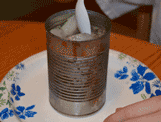
Water Cycle Experiment
Experiment to show all the phases of the water cycle.

IMAGES
VIDEO